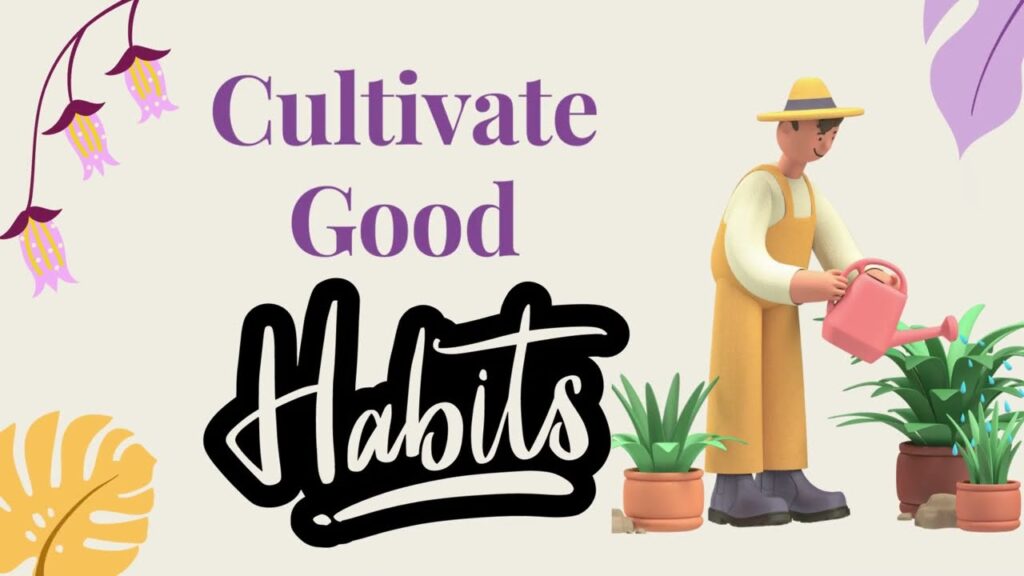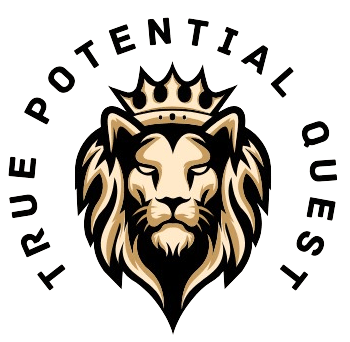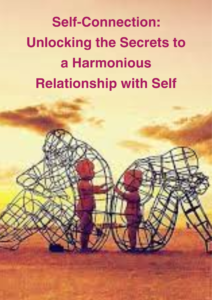
Jump To Section
There’s a universal longing to evolve into the finest rendition of ourselves. This quest for self-mastery transcends mere external achievements; it’s a profound journey of inner transformation, an expedition towards unearthing our latent potential, and a conscious endeavor to shape the contours of our destiny. Welcome to this odyssey of self-discovery, where we embark on a profound exploration of self-mastery strategies that possess the transformative power to redefine and elevate every facet of our existence.
Self-mastery is the art of understanding and controlling oneself, leading to personal growth and fulfillment. It involves mastering our thoughts, emotions, and actions to live a life aligned with our values and aspirations.
At the core of self-mastery is self-awareness. By understanding our strengths, weaknesses, desires, and fears, we gain insight into what drives us and what holds us back. This awareness allows us to identify areas for improvement and set meaningful goals for our personal development journey.
Self-mastery also involves self-discipline and self-control. It’s about making conscious choices and taking intentional actions that align with our goals and values, even when faced with challenges or temptations.
At its core, self-mastery entails a deep introspective voyage, wherein we traverse the intricate landscapes of our psyche, unravelling layers of self-awareness and understanding. It beckons us to confront our fears, acknowledge our strengths, and confront the limiting beliefs that often shackle our aspirations. This journey is not one of passive observation but active engagement—a commitment to excavate the reservoirs of our potential and harness them in service of our aspirations.
Moreover, self-mastery is about cultivating an unwavering sense of purpose—a guiding star that illuminates our path amidst the darkest of nights. It’s about setting sail with clear intentions, anchored by goals that resonate with the very essence of our being. With each step forward, we inch closer to the realization of our dreams, propelled by the unwavering belief that our destiny lies within our grasp.
Check This Amazing Blog: Mastering Goal Setting: 5 Outstanding Strategies for Personal Development Triumphs
Yet, self-mastery also entails embracing the inevitability of setbacks and failures as integral components of our growth. It demands resilience in the face of adversity and an unwavering commitment to rise, time and again, from the ashes of disappointment. For it is through these trials that we refine our character, fortify our resolve, and emerge as victors in the grand saga of our lives.
So, as we embark on this journey of self-mastery together, let us not merely aspire for greatness but embody it in every thought, action, and deed. For within each of us lies the infinite potential to sculpt our destinies and craft a life that transcends the ordinary—a life imbued with purpose, passion, and profound fulfilment.
Understanding Self-Mastery
Self-mastery is the art of gaining control over our thoughts, emotions, and actions. It’s about being the captain of our ship, steering it towards the shores of our dreams. But before we embark on this voyage, we must first understand ourselves – our strengths, weaknesses, desires, and fears. Self-awareness is the compass that guides us through the vast sea of personal development.
Self-mastery is akin to mastering the sails of our ship in the vast ocean of life, where we chart our course amidst tumultuous waves and tranquil seas. It’s the art of taking the helm, guiding our vessel with precision towards the shores of our dreams.
Consider the story of Maya Angelou, whose journey towards self-mastery was marked by a profound understanding of her own identity and potential. Born into poverty and discrimination, she faced numerous obstacles throughout her life. Yet, through introspection and self-awareness, Angelou unearthed her inner strength and resilience. By confronting her fears and embracing her unique voice, she transformed herself from a victim of circumstance into a beacon of inspiration for millions around the world.
A Nugget of Wisdom: Cultivate Your Best Version: 5 Proven Strategies for Success
Similarly, Oprah Winfrey’s path to self-mastery serves as a testament to the transformative power of self-awareness. Despite enduring a tumultuous childhood marked by abuse and hardship, Winfrey refused to be defined by her circumstances. Through introspection and self-reflection, she discovered her innate talents and passions, ultimately forging a path towards unprecedented success and influence. By understanding her own strengths and weaknesses, Winfrey not only achieved personal fulfillment but also empowered countless others to do the same.
In essence, in self-mastery self-awareness acts as the compass that guides us through the labyrinth of personal development. It enables us to navigate the complexities of our inner landscape, discerning the currents of our thoughts, emotions, and desires. Armed with this profound understanding of ourselves, we gain self-mastery over our destiny, steering our ship towards the sh
ores of our dreams with unwavering confidence and purpose.
Delve Into Your Inner Being

Reflecting on your inner being is a journey of self-discovery and understanding. It involves taking the time to pause, turn inward, and explore your thoughts, emotions, and beliefs. This process allows you to gain insight into who you truly are, what you value, and what drives you.
Check This Blog: Embracing Discomfort: 5 Wonderful Strategies to Fuel Personal Growth Beyond Your Comfort Zone
When you reflect on your inner being, you create space for self-awareness and personal growth. You may uncover patterns of behavior or thought that no longer serve you, allowing you to make positive changes in your life. Through reflection, you can also identify your strengths and weaknesses, helping you to build on your strengths and work on areas that need improvement.
Reflecting on your inner being involves setting aside time to introspect and understand yourself better. Here’s a crisp idea of how to do it:
- Find Quiet Time: Set aside a few minutes each day to be alone with your thoughts. This could be in the morning, during a break, or before bed.
- Ask Yourself Questions: Reflect on questions like “What am I feeling right now?”, “What are my goals and values?”, and “What brings me joy?”
- Journaling: Write down your thoughts, feelings, and insights. This helps to clarify your thoughts and track your progress.
- Mindfulness Practice: Practice mindfulness techniques like deep breathing or meditation to quiet your mind and focus on the present moment.
- Review Your Day: Take a few minutes at the end of each day to reflect on what went well and what you could improve.
- Seek Feedback: Ask trusted friends or mentors for feedback on your strengths and areas for growth.
Moreover, reflecting on your inner being fosters a deeper connection with yourself and others. It cultivates empathy and compassion, as you gain a better understanding of your own experiences and those of others. Ultimately, by regularly taking the time to reflect on your inner being, you can lead a more fulfilling and authentic life.
Release Old Baggage
Letting go of the pains of the past is crucial for our emotional well-being and personal growth. Carrying past hurts, grievances, or traumas can weigh us down and hinder our ability to fully embrace the present. Dwelling on past events keeps us trapped in a cycle of negative emotions, preventing us from moving forward in life.

When we hold onto past pain, we allow it to control us. It shapes our thoughts, feelings, and behaviors, often leading to feelings of resentment, anger, or sadness. However, by letting go of these pains, we free ourselves from their grip and open ourselves up to new opportunities and experiences.
A Gift For You: Embracing Your Inner Child: 5 Awesome Steps Journey to Lasting Self-Love
Letting go doesn’t mean forgetting or condoning what happened. Instead, it’s about accepting the past for what it is and choosing to release the emotional attachment to it. It’s about forgiving others and ourselves, not because they deserve it, but because we deserve peace and freedom from the burden of carrying around past pain.
Here’s how you can begin the process:
- Acknowledge Your Feelings: It’s important to recognize and accept your emotions. Allow yourself to feel anger, sadness, or frustration about what happened.
- Practice Forgiveness: Forgiveness doesn’t mean forgetting or condoning what happened, but it’s about releasing the emotional hold that the past has on you. Forgiving others and yourself is a powerful way to move forward.
- Focus on the Present: Instead of dwelling on the past, shift your focus to the present moment. Practice mindfulness and engage in activities that bring you joy and fulfillment.
- Learn from the Experience: Every experience, no matter how painful, offers an opportunity for growth. Reflect on what you’ve learned from the past and how it has shaped you.
- Set Boundaries: If certain people or situations continue to trigger painful memories, it’s okay to set boundaries or even cut ties if necessary.
- Seek Support: Don’t be afraid to reach out to friends, family, or a therapist for support. Talking about your feelings can help you gain perspective and heal.
When we let go of the pains of the past, we create space for healing and growth. We allow ourselves to live in the present moment, fully embracing all that life has to offer. It’s a journey that requires courage, self-compassion, and patience, but the rewards are immeasurable. So, take a deep breath, let go, and embrace the beauty of the present moment.
Remember, letting go of the pains of the past is a process, and it may take time. Be patient with yourself and celebrate each step forward. By letting go, you create space for new experiences and opportunities to enter your life, ultimately leading to greater happiness and peace.
Setting Clear Goals
Just as a ship navigates the boundless expanse of the sea with a defined destination, our lives require a clear sense of direction to steer through the currents of existence. Without goals, we drift aimlessly, tossed about by the whims of circumstance. It is in recognizing this truth that we begin our journey towards self-mastery.

Imagine the story of Steve Jobs, whose unwavering commitment to his vision transformed the landscape of technology. From the inception of Apple in his parents’ garage to revolutionizing the way we interact with technology, Jobs’ journey was guided by a singular goal: to innovate and redefine the limits of possibility. His clarity of purpose propelled him forward, even in the face of adversity, ultimately cementing his legacy as one of the most influential figures of our time.
Check This Blog: Embracing Discomfort: 5 Wonderful Strategies to Fuel Personal Growth Beyond Your Comfort Zone
Similarly, consider the example of Malala Yousafzai, whose steadfast dedication to education and gender equality ignited a global movement. Despite facing threats and violence for her advocacy, Malala remained resolute in her pursuit of justice and equality. Her unwavering commitment to her goals not only earned her the Nobel Peace Prize but also inspired millions to stand up for their rights and beliefs.
In our own lives, setting clear and achievable goals is the cornerstone of self-mastery. By taking the time to reflect on our passions, values, and aspirations, we define the trajectory of our journey. Whether it’s pursuing academic excellence, advancing in our careers, or fostering personal growth, our goals serve as beacons of light, guiding us through the darkest of nights.
Moreover, having a roadmap not only provides direction but also instills a sense of purpose and motivation. It fuels our determination, propelling us forward even when the winds are against us. With each milestone achieved, we inch closer to our destination, empowered by the knowledge that every step taken is a testament to our commitment to self-mastery.
Live in the Here and Now
Being mindful of the present moment is a powerful practice that can bring about profound changes in our lives. When we are mindful, we are fully engaged in what is happening right now, without dwelling on the past or worrying about the future.

Being present allows us to savor life’s simple pleasures and appreciate the beauty around us. It enables us to connect more deeply with ourselves and others, fostering stronger relationships and a greater sense of fulfillment.
To be mindful of the present, we can start by paying attention to our breath, our thoughts, and our surroundings. We can engage in activities like meditation, yoga, or simply taking a walk in nature to cultivate present awareness.
Check Out This Blog: Mastering Self-Awareness: 4 Awesome Techniques To Unleash Your Inner Strength
By being mindful of the present, we can reduce stress, anxiety, and depression, and increase our overall sense of well-being. It’s a practice that requires patience and dedication, but the rewards are well worth the effort.
Here are some simple ways to cultivate present awareness:
- Practice Meditation: Set aside a few minutes each day to sit quietly and focus on your breath. Notice the sensations as you inhale and exhale, and gently bring your mind back to the present whenever it wanders.
- Engage Your Senses: Take a moment to fully experience the sights, sounds, smells, and textures around you. Notice the colors of the sky, the chirping of birds, or the feel of the ground beneath your feet.
- Stay Grounded: When you find your mind wandering to the past or future, gently bring your attention back to the present moment. Use grounding techniques like focusing on your feet on the ground or feeling the sensations in your body.
By being mindful of the present, we can reduce stress, anxiety, and depression, and increase our overall sense of well-being. It’s a practice that requires patience and dedication, but the rewards are well worth the effort.
Cultivating Positive Habits
Our habits serve as the threads that weave the fabric of our destiny. Much like a tiny seed gradually burgeons into a towering tree through the patient nurture of time and care, our habits wield the power to sculpt the trajectory of our existence. It’s through the cultivation of positive habits that we sow the seeds of transformation, charting a course towards the realization of our deepest aspirations.

Consider the journey of Nelson Mandela, whose steadfast commitment to habits of resilience, forgiveness, and empathy propelled him from a prison cell to the presidency of South Africa. Despite enduring decades of captivity and oppression, Mandela remained unwavering in his dedication to his principles, relying on the power of positive habits to sustain him through the darkest of times. His unwavering resolve serves as a poignant reminder of the transformative potential inherent in our daily practices.
Outstanding Blog: Unlocking Potential: 6 Strategies to Maximize Your Success
Similarly, the story of Marie Curie illustrates the profound impact of disciplined habits on personal achievement. Faced with societal barriers and gender discrimination, Curie’s relentless pursuit of scientific inquiry was fueled by her unwavering dedication to the habit of curiosity and perseverance. Her groundbreaking discoveries in the field of radioactivity not only revolutionized the realm of science but also paved the way for future generations of trailblazing women.
In our own lives, cultivating positive habits is the cornerstone of self-mastery. Whether it’s the simple act of rising early to seize the day, the discipline of regular exercise to nourish our bodies, or the practice of gratitude to cultivate a mindset of abundance, these small yet consistent actions lay the groundwork for profound transformation. With each deliberate choice, we inch closer to our goals, empowered by the knowledge that our habits shape not only our present circumstances but also the contours of our destiny.
Eliminate Distractions
Eliminating distractions is essential for maintaining focus and productivity in our daily lives. With the constant barrage of notifications, emails, and other interruptions, it’s easy to lose sight of our priorities and goals. However, by intentionally removing distractions, we can create an environment that fosters concentration and success.

One effective way to eliminate distractions is to declutter our physical space. This means organizing our work area, removing unnecessary items, and creating a clean and tidy environment that promotes focus.
Additionally, we can limit digital distractions by turning off notifications on our devices, setting specific times for checking emails and social media, and using productivity tools to block distracting websites.
It’s also important to set boundaries with others and communicate our need for focus time. This might mean setting specific work hours, using a “do not disturb” sign, or politely asking others to respect our need for concentration.
This Blog: Boost Productivity For Night Owl Habits: 5 Effective Evening Routines
By taking proactive steps to eliminate distractions, we can boost our productivity, reduce stress, and achieve our goals more efficiently.
Here’s how to eliminate distractions effectively:
- Declutter Your Physical Space: Organize your work area, remove unnecessary items, and create a clean environment that promotes focus.
- Limit Digital Distractions: Turn off notifications, set specific times for checking emails and social media, and use productivity tools to block distracting websites.
- Set Boundaries: Communicate your need for focus time to others. Set specific work hours, use a “do not disturb” sign, or politely ask others to respect your need for concentration.
By taking proactive steps to eliminate distractions, you can boost your productivity, reduce stress, and achieve your goals more efficiently.
Embracing Failure as a Stepping Stone
Failure is not the opposite of success; it’s a stepping stone to success. Every setback, every mistake is an opportunity to learn and grow. Instead of fearing failure, embrace it as a teacher on your journey to self-mastery. Use setbacks as fuel to propel you forward, knowing that resilience and perseverance are the hallmarks of true champions.

Consider the narrative of Thomas Edison, whose relentless pursuit of innovation was punctuated by countless failures. Despite enduring over a thousand unsuccessful attempts at inventing the light bulb, Edison viewed each setback not as a defeat but as a valuable lesson in the journey towards success. His unwavering determination and resilience eventually led to the illumination of the world, illuminating the path for generations to come.
Similarly, the story of J.K. Rowling epitomizes the transformative power of embracing failure. Rejected by numerous publishers and facing personal hardships, Rowling found solace in her passion for writing. Instead of succumbing to despair, she used her setbacks as fuel for creativity, channeling her experiences into the creation of the beloved Harry Potter series. Through perseverance and unwavering resolve, she transformed adversity into triumph, becoming one of the most celebrated authors of our time.
In the pursuit of self-mastery, failure serves not as a barrier but as a beacon guiding us towards growth and enlightenment. It is through the crucible of failure that we forge the steel of resilience and the iron of perseverance. By embracing failure as a teacher rather than a foe, we transcend the limitations of our circumstances, emerging stronger, wiser, and more resilient than before.
So, let us not cower in the face of failure, but instead, embrace it as an indispensable ally on our journey towards self-mastery. For it is through the crucible of failure that we discover the true depth of our potential, and it is through the ashes of defeat that we rise, phoenix-like, to claim the mantle of greatness.
Nurturing a Growth Mindset
Your mindset determines your reality. Adopt a growth mindset, believing that your abilities and intelligence can be developed through dedication and hard work. Embrace challenges as opportunities for growth, and celebrate your efforts rather than just focusing on outcomes. With a growth mindset, every obstacle becomes a stepping stone, and every setback becomes a lesson in resilience.
In the vibrant mosaic of personal development, nurturing a growth mindset is akin to planting the seeds of possibility in the fertile soil of our minds. It’s about cultivating a mindset that thrives on challenges, embraces the beauty of learning, and celebrates the journey of continuous growth.
Consider the tale of Michael Jordan, whose ascent to basketball greatness was not without its setbacks. From being cut from his high school basketball team to facing defeat in the playoffs, Jordan’s journey was marked by moments of adversity. Yet, it was his unwavering belief in the power of growth that propelled him forward. Instead of succumbing to defeat, Jordan used each setback as a springboard for improvement, tirelessly honing his skills and pushing the boundaries of what was possible. His relentless pursuit of excellence not only cemented his legacy as one of the greatest athletes of all time but also inspired millions to embrace the power of a growth mindset.
Similarly, the story of Oprah Winfrey serves as a testament to the transformative potential of adopting a growth mindset. Despite enduring a turbulent childhood marked by abuse and poverty, Winfrey refused to let her circumstances define her. Through the lens of growth, she viewed every obstacle as an opportunity for learning and growth, channeling her experiences into a platform for empowerment and change. By embracing the belief that intelligence and abilities can be developed through dedication and hard work, Winfrey transformed her life from one of hardship to one of unprecedented success and influence.
In our own lives, nurturing a growth mindset is the key to unlocking our fullest potential. It’s about reframing our failures as opportunities for growth, viewing challenges as stepping stones to success, and celebrating the journey of continuous improvement. With a growth mindset as our compass, we embark on a journey of self-discovery, propelled by the belief that our greatest achievements lie not in our innate talents, but in our willingness to embrace the process of growth and transformation.
Practicing Self-Compassion
In the pursuit of self-mastery, it’s easy to be too hard on ourselves, expecting perfection at every turn. But true growth comes from a place of self-compassion, where we treat ourselves with kindness and understanding, especially in times of struggle. Be gentle with yourself, acknowledge your efforts, and remember that self-love is the foundation of all personal development.
Let’s explore the journey of Serena Williams, a tennis icon whose path to greatness was paved with self-compassion and resilience. Serena Williams, despite being hailed as one of the greatest athletes of all time, encountered numerous obstacles throughout her career. From injuries to personal struggles, Williams faced setbacks that could have easily derailed her trajectory. However, it was her unwavering commitment to self-compassion that allowed her to navigate through the challenges.
In moments of defeat or adversity, Serena Williams didn’t succumb to self-doubt or harsh self-criticism. Instead, she embraced self-compassion, acknowledging her efforts and showing kindness to herself. This enabled her to bounce back stronger, armed with a renewed sense of determination and resilience.
Williams’ journey is a testament to the transformative power of self-compassion in the pursuit of self-mastery. By treating herself with kindness and understanding, even in the face of failure or adversity, she not only overcame obstacles but also emerged as a symbol of strength and inspiration for countless individuals worldwide.
Similarly, the story of Mahatma Gandhi exemplifies the transformative power of self-compassion in the pursuit of self-mastery. Despite facing countless setbacks and betrayals in his quest for Indian independence, Gandhi remained steadfast in his commitment to non-violence and compassion. By extending forgiveness to his adversaries and cultivating compassion for himself, Gandhi not only transformed the course of history but also inspired a global movement for peace and justice.
In our own lives, cultivating self-compassion is the key to unlocking the gates of self-mastery. It’s about relinquishing the shackles of self-judgment and embracing the inherent worthiness of our being. By extending the same kindness and understanding to ourselves that we so readily offer to others, we create a nurturing environment for growth and transformation. So, be gentle with yourself, acknowledge your efforts, and remember that self-love is not a destination but a journey—a journey towards the fullest expression of our authentic selves.
Conclusion:
As you step onto the path of self-mastery, let the whisper of possibility guide you through the labyrinth of transformation. Understand that this journey is not a fixed destination but an ever-unfolding odyssey, where each twist and turn presents an opportunity for growth and evolution. Embrace the challenges that lie ahead, for they are the chisels that sculpt your character and fortify your spirit. With each obstacle overcome, celebrate the victories, no matter how small, for they are the milestones that mark your progress on this winding road.
Remember, self-mastery is not a sprint but a marathon—a lifelong commitment to becoming the best version of yourself. It requires dedication, perseverance, and an unwavering commitment to personal growth. Just as a sculptor meticulously shapes a block of marble into a masterpiece, so too must you mold your destiny with intention and purpose.
Take inspiration from the resilience of Helen Keller, who overcame the dual challenges of blindness and deafness to become a beacon of hope and inspiration. Through unwavering determination and an indomitable spirit, Keller transformed her limitations into strengths, proving that the human spirit knows no bounds.
Similarly, draw strength from the perseverance of Nelson Mandela, whose decades-long struggle against apartheid epitomized the power of resilience and forgiveness. Despite enduring imprisonment and adversity, Mandela emerged as a symbol of reconciliation and unity, demonstrating that even in the face of seemingly insurmountable odds, one can rise above adversity to create a better world.
In your journey of self-mastery, remember that the power to shape your destiny lies within you. With dedication, perseverance, and a steadfast commitment to personal growth, you have the ability to sculpt a life that is not only worth living but also one that inspires others to embark on their own journey of transformation.
Check This blog by Mindtools: Self-Mastery





Pingback: Revolutionize Your Habits: 4 Dynamic Strategies for Lasting Change - True Potential Quest
Pingback: Resilience Unveiled: 4 Awesome Personal Stories Telling Connection - True Potential Quest
Pingback: Visualizing Success: 6 Strategies to Manifest Your Dreams - True Potential Quest